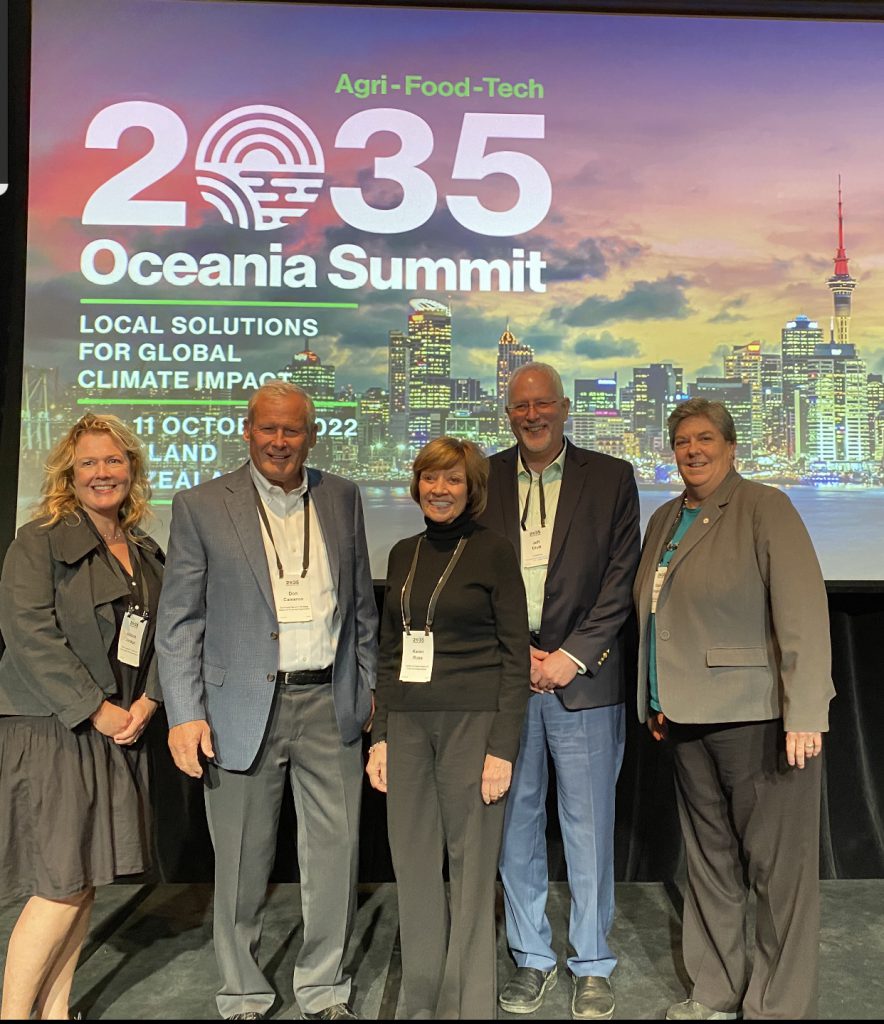
By CDFA Secretary Karen Ross
With themes of collaboration, innovation, and local solutions, the 2035 Oceania Summit in Auckland, New Zealand opened with a traditional Māori Pōhwiri (welcoming), including an emphasis on the wisdom of sharing traditional Baskets of Knowledge from yesterday and today, in order to create new baskets to assist mankind in the future.
The day’s message was clear – climate change is stressing planetary boundaries and requiring action by the global population working in agriculture. To avoid the impact of global warming above 1.5°C, global carbon emissions must fall by 77 percent by 2030. The time for action is now and agriculture must have a roadmap to net-zero emissions from food production.
Day One of the conference focused on scientific advances in the research community, carbon farming, and empowering farmers to adapt to new ways of sustainable agricultural production – through technology, on-farm practices, and associated industry opportunities for reducing emissions. California’s Healthy Soils Program was highlighted as a model of leadership for the role of governments as facilitators for climate action.
The conference, which has more than 400 attendees from the Pacific region, is highlighting the lessons and knowledge necessary for local solutions to lessen global climate impact. California’s participation and engagement in the conference is helping to build bridges on climate action and serve as a foundation to connect New Zealand and California farmers, academia and governments to help achieve net-zero emissions.
Secretary Ross is in New Zealand this week for an exchange on climate change adaptation. Joining her in the delegation are representatives from agriculture and academia. This mission will serve as an educational program to help secure the long-term competitiveness of California specialty crops and enhance the competitiveness of the industry through more sustainable, diverse and resilient specialty crop systems.


